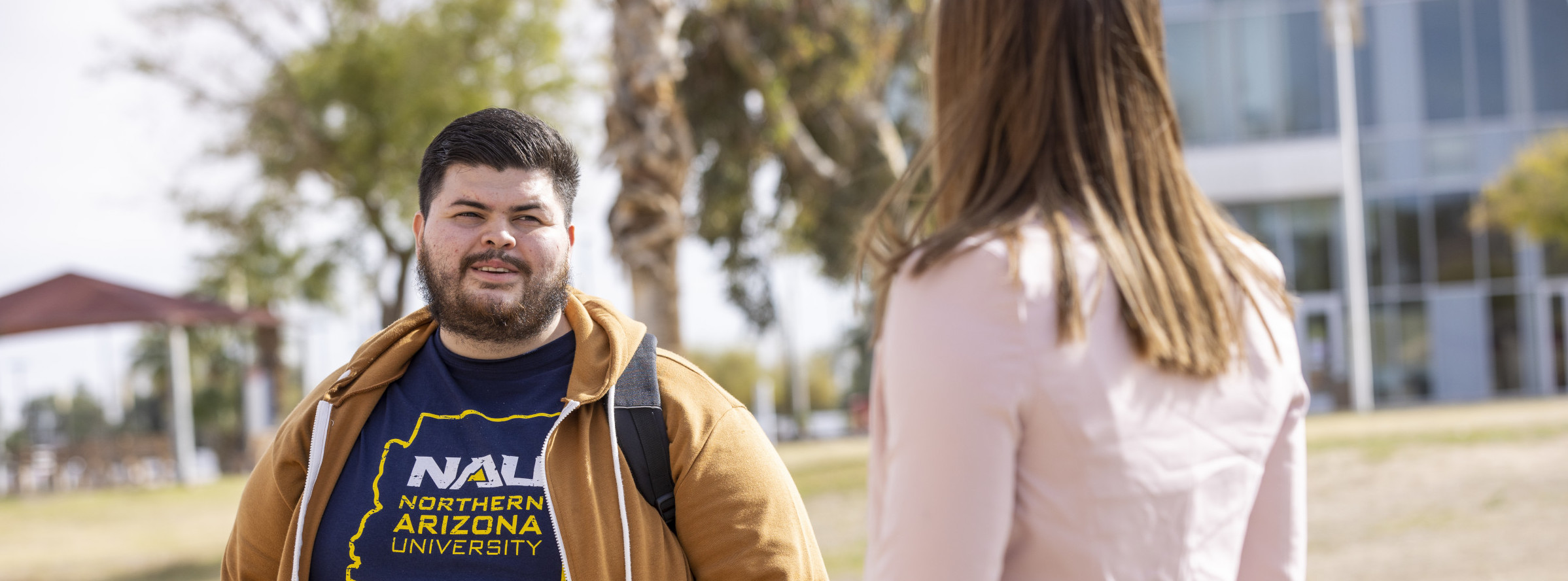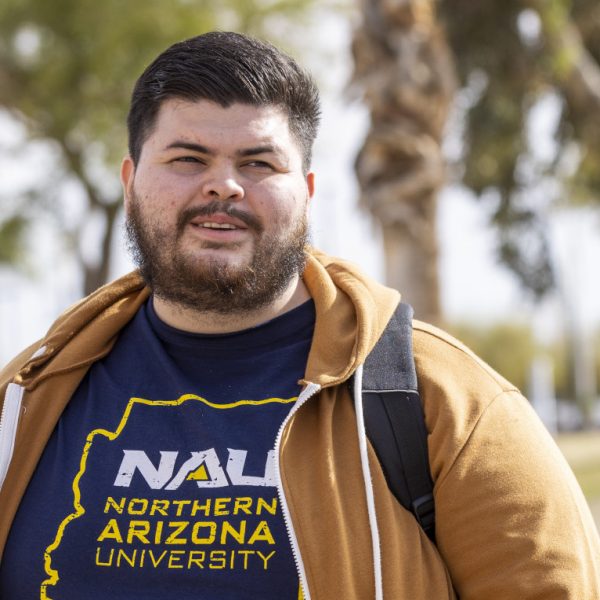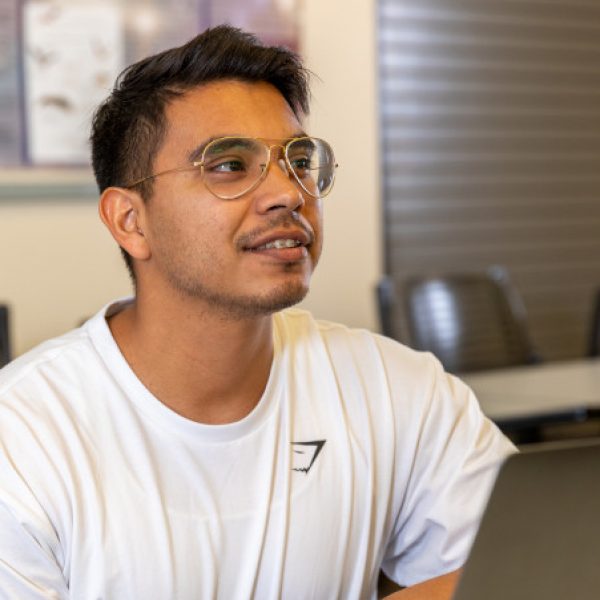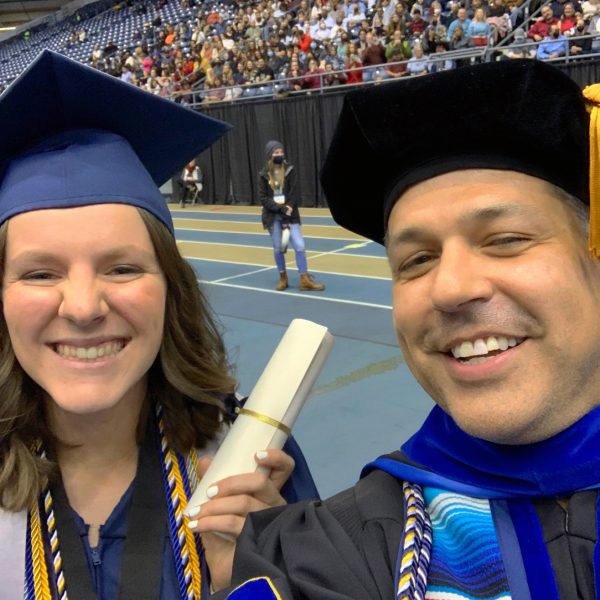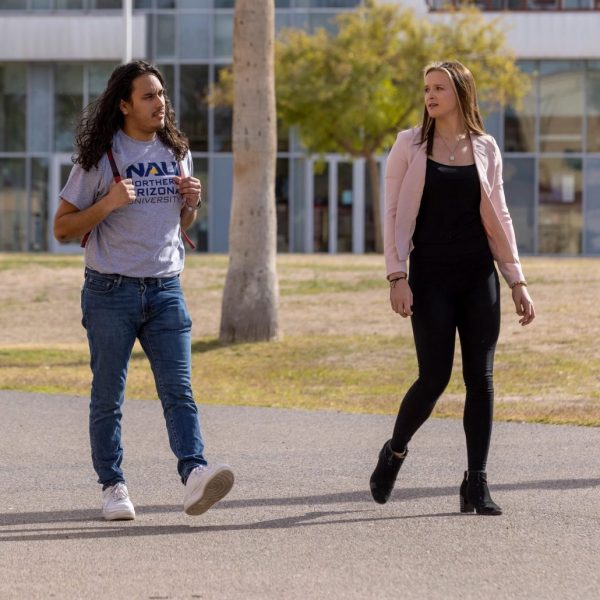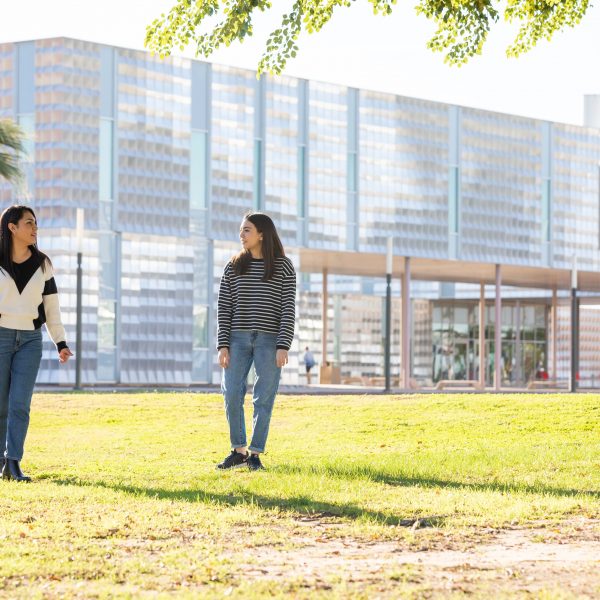Bryan Vazquez, a junior Business Administration student at NAU–Yuma, wants to inspire other first-generation students to pursue a college degree.
NAU–Yuma student Bryan Vazquez has two goals: the first is economic stability. The second is to serve as a tutor and mentor for students in his hometown. Vazquez is on track to graduate in 2023 with a bachelor’s degree in Business Administration. A first-generation college student, he transferred to NAU–Yuma from Imperial Valley College in California. To get to class, he commutes more than an hour each way between Yuma and the home he shares with his brothers in El Centro, California.
A numbers guy, Vazquez’s intellectual interests lie mainly in accounting. “Business Administration has been a good choice,” he says. “I’m learning financing and numbers, which I like. The experience has been great.”
Vazquez says he appreciates the small class sizes at NAU–Yuma. “That gives a lot more freedom for the professors to give one-on-one help.” Beyond the personalized attention, Vazquez says his time at NAU–Yuma has been favorable in other ways.
“It’s pretty cool because it’s a really positive place. Everybody here, they’re friendly, they’re helpful. Even in my workplace, I notice that I’m learning a lot as a worker. I’m able to guide other students with the knowledge I’m getting.”
Vazquez works in the Student Service Center, where he helps students with academic and administrative support. He can apply this experience toward his goal of helping students in El Centro see that they’re not limited to minimum-wage work.
El Centro, the largest city in California’s Imperial Valley in the rural southeast corner of the state, has a 24 percent poverty rate, according to the US Census Bureau. Overall, only 16 percent of El Centro’s residents have a bachelor’s degree or higher, compared with 34 percent statewide and 37 percent nationally. Vazquez is among the town’s 87 percent Hispanic or Latino population, a traditionally underserved demographic in higher education. For many of the families he grew up with, including his own, Vazquez said labor-intensive and low-paying farm work was all they knew. “Everybody thinks their only option is to graduate high school and from there head straight to the fields.”
A different path
Vazquez was lucky to have a friend show him another path. NAU–Yuma made it possible for him to take it. Vazquez’s friend went to community college in San Diego, where he found support and resources to pursue a bachelor’s degree. At the same time, Vazquez was struggling. “I was feeling discouraged because I would see a lot of my friends were dropping out, getting bad grades. I thought, ‘I’m just going to go back to the fields.’ I thought that’s where I was going to stay.”
But he saw the opportunities his friend had to continue his education and was inspired to persevere.
“You’ve just got to keep on trying,” he says.
NAU–Yuma provided him with convenience and cost savings. He can live at home and commute to school while getting an education, moving closer to his dream career of working for a bank as a financial analyst. His next step will be to pursue a master’s degree in finance.
“Then I’d be able to come back here and tell younger generations what I learned or what worked for me. And let them know that they’re not just stuck to the same fieldwork that they’re used to.” More than that, he also wants to provide them with the tools they’ll need to be successful in higher education.
“I would like to open some sort of center to offer tutoring, if I could, for free or at a very affordable price. Because I feel like a lot of the students get discouraged over there,” Vazquez says. “And from there, I know a lot of friends have said they’re willing to come back and also share their experiences. We could all get together. And if a person wants to know more about science, we’ll have someone specialized in that. If someone wants to know more about art, we’ll have someone specialized in that.”
The key, he said, is to have the financial security that will allow a student to pursue an education and not feel obligated to take a low-wage job to help their family survive.
Vazquez has already made a difference in one person’s life—his younger brother’s.
“At first, he wasn’t really into the idea of school,” Vazquez says. “He was just saying, ‘I will just go, if not to the fields, to just some fast-food restaurant job.’” People were telling his brother that education isn’t worth the effort. But Vazquez convinced him to keep going.
“I said, ‘Just keep on going; you’re so close to graduating.’ So he felt a little inspiration to pursue what he wants. And he went back to school, and he’s doing it now.”

